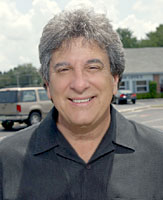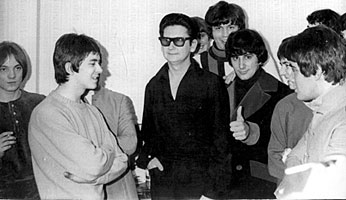Mean Woman BluesArtist: Roy Orbison (peak Billboard position # 5 in 1963)
Words and Music by Claude Demetrius
Mmm, well I got a woman mean as she can be
Well I got a woman mean as she can be
Some-a-times I think she's almost mean as me
She gotta ruby lips, she got shapely hips,
yeahBoy she makes ole Roy-oy flip
I got a woman mean as she can be
Some-a-times I think she's almost mean as me
Well I ain't braggin', it's understood
Everything I do, well I sure do it good
Yeah I got a woman mean as she can be
Some-a-times I think she's almost mean as me,
well,She gotta ruby lips, she got shapely hips,
yeah Boy she makes ole Roy-oy flip
I got a woman mean as she can be
Some-a-times I think she's almost mean as me,
easy now
SURFIN’ USA LYRICS
SWEET LITTLE SIXTEEN LYRICS
Spring of '58
Spring of '63
If everybody had an ocean
They're really rockin' in Boston
Across the u.s.a.
In Pittsburgh, PA
Then everybody’d be surfin’
Deep In The Heart of Texas
Like californi-a
And 'round the Frisco Bay
You’d seem ’em wearing their baggies
All over St. Louis
Huarachi sandals too
Way down in New Orleans
A bushy bushy blonde hairdo
All the cats wanna dance with
Surfin’ u.s.a.
Sweet Little Sixteen
You’d catch ’em surfin’ at del mar
Ventura county line
Santa cruz and trestle
Australia’s narabine
All over manhattan
And down doheny way
Everybody’s gone surfin’
Surfin’ u.s.a.
We’ll all be planning that route
We’re gonna take real soon
We’re waxing down our surfboards
We can’t wait for june
We’ll all be gone for the summer
We’re on surfari to stay
Tell the teacher we’re surfin’
Surfin’ u.s.a.
Haggerties and swamies
Pacific palisades
San ano free and sunset
Redondo beach l.a.
All over la jolla
At waimia bay
Everybody’s gone surfin’
Surfin’ u.s.a.
Everybody’s gone surfin’
Surfin’ u.s.a.
Everybody’s gone surfin’
Surfin’ u.s.a.










 Check out what happened to Rodney on
Check out what happened to Rodney on

